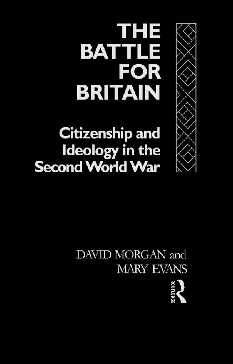It is generally accepted that Britain was held together during the second world war
by a spirit of national democratic `consensus'. But whose interests did the consensus
serve? And how did it unravel in the years immediately after victory?
The Battle for Britain aims to re-assess the impact of the second world war upon
changes in ideology and social policy in Britain. In particular, it analyses the
mixed and often contradictory pressures influencing the formation of postwar social
democratic consensus' and the expansion of social citizenship under a welfare state.
However, whilst in these respects the book offers a social history of the period,
the authors' main purpose is to mount a critique of the Thatcher years which have
castigated in principle and dismantled in practice the postwar social reconstruction.
With hindsight we suggest that the postwar consensus to 1979 represented an ideological
deviation in the history of British class politics and the Conservative party itself
until Mrs Thatcher's social and economic policies restored continuity with the ruling
assumptions of the past.

